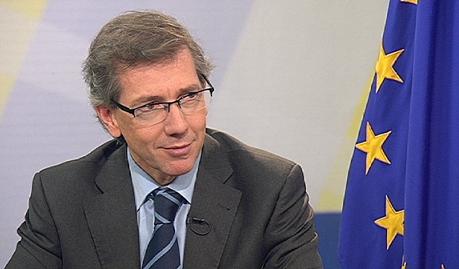BEIRUT: Amused, a friend asked me one day: How can the Lebanese tackle the main course after gorging on that huge mezze, the selection of Lebanese appetizers, which takes up the whole table?
I answered immediately and almost without thinking: We rarely ever get to the main course.
This anecdote has been at the root of a more comprehensive reflection on the psychology of the Lebanese. Communities, like mezze, are so numerous that when brought together, they never get down to the real issues. Lost amongst ancestral prologues and elusive bittersweet memories, real problems are always put off and we deal only with those problems right in front of us.
Parting from this norm, the Professional Mediation Centre (Centre Professionnel de Médiation, or CPM) of St. Joseph University (USJ) in Beirut, whose role is equivalent to that of an academic ombudsman but which also operates as a private centre any citizen can go to for conflict mediation, grapples with the problems at hand.
CPM was established at St. Joseph University in 2006. USJ has trained many of Lebanon s political leaders from before Lebanon s independence in 1943 until present day, including several presidents of the Republic: Emile Eddé, Béchara El Khoury, Camille Chamoun and Charles El Hélou. Founded in 1875, the university brings together individuals representing the diversity of the Lebanese mosaic: Maronites, Greek Orthodox, Greek Catholics, Sunnis, Shias and Druzes.
One day some of these young students may become leaders whose jobs will be to manage the country s policies and encourage harmony between its constituent parts.
As an independent centre, CPM provides mediation training to actors from all walks of life in Lebanon. In a few short years, it has already trained more than 70 mediators from all backgrounds and denominations. This includes lawyers, doctors and engineers, and both men and women from the ages of 25 to 77. These mediators voluntarily enrolled in CPM and agreed to its code of ethics, which is designed to serve all Lebanese citizens.
CPM has also undertaken a mediation training project of 75 young Lebanese in five rural districts of the country. Participants stemmed from the Shia, Sunni, Druze and Maronite confessions. Financially supported by the European Community, the project aims to help these youth become mediators of their own conflicts, in their villages and in their daily life – and to no longer see the other through the lens of ethnicity and religion.
CPM also created within USJ a mediation unit in order to facilitate communication and to assist in resolving daily disagreements. Like in any other university, it is common that conflicts, resulting from provocations, defamation or political insults, arise between students especially when it comes to electing student officials.
In practice, our work is carried out through mediation sessions in which young participants have a neutral and discreet environment to express themselves freely. Treated as equals, they are listened to without prejudice and understood without judgment. Their opinions are respected and, perhaps for the first time in their lives, they can contemplate throwing off the weight they have carried since childhood: having to answer for their community or their family.
In this context, members of different communities begin to see common behaviours and similar goals, such as belonging to the same country and the same nation. Mediation therefore represents a solution for Lebanese youth. It is a social project , especially in Lebanon.
There must be waged, especially in Lebanon, a war on war. As Victor Hugo wrote so aptly: War is a war of men; peace is a war of ideas . What is nobler than an idea that puts two people face-to-face, not to make war with each other but to seek peace?
Although the concept of an ombudsman remains relatively new in Lebanon, there is no doubt that the institutionalized practice of mediation within universities will experience an important development in the years to come, both in Lebanon and in the greater Middle East.
Johanna Hawari-Bourgély is the founder and manager of the Professional Mediation Centre at St. Joseph University in Beirut. This article is part of a series exploring the evolving role of ombudsmen as conflict resolvers in changing times written for the Common Ground News Service (CGNews).
